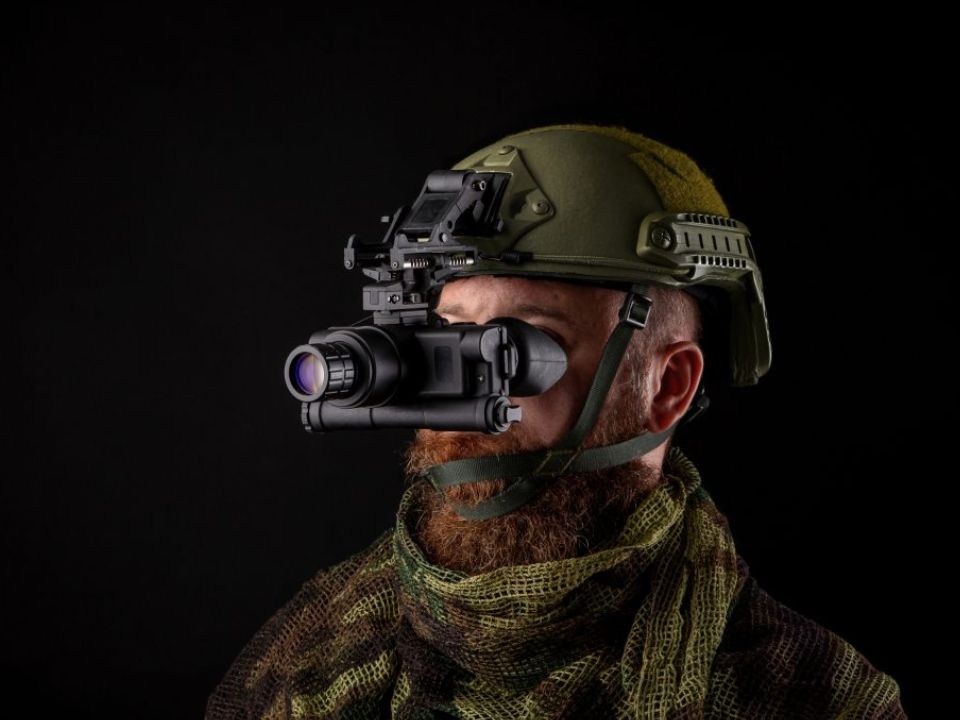Night Vision Goggles for Boating and Maritime Operations
Night vision goggles (NVGs) have become valuable tools in marine navigation, offering enhanced visibility and safety:
1. Improved Visibility: NVGs provide boaters and maritime operators with clear visibility in low-light or complete darkness, allowing them to navigate safely and confidently. This increased visibility aids in detecting potential hazards, such as other vessels, debris, or navigational obstacles.
2. Navigation Support: NVGs assist boaters in identifying navigational aids, such as buoys, markers, and lights, more easily. This helps maintain proper course and avoid straying into hazardous areas, ensuring a safer navigation experience.
3. Maneuvering in Restricted Areas: NVGs assist boaters in maneuvering through narrow channels, marinas, or harbors at night. The goggles provide a clear view of the surroundings, enabling precise navigation and minimizing the risk of collisions or accidents.
The use of night vision goggles significantly enhances navigational safety in marine environments:
1. Early Detection of Hazards: NVGs enable boaters to detect potential hazards, such as other vessels or floating debris, at greater distances and under low-light conditions. This early detection allows for timely course corrections and prevents accidents.
2. Depth Perception: NVGs provide depth perception, allowing boaters to accurately assess water depths and identify potential shallow areas or underwater obstructions. This prevents grounding or damage to the vessel, particularly in unfamiliar or poorly lit areas.
3. Wildlife Awareness: NVGs help boaters identify and avoid marine wildlife, such as whales or dolphins, during nighttime operations. This reduces the risk of collisions and ensures the safety of both the wildlife and the vessel.
Night Vision Goggles for Search and Rescue at Sea
NVGs play a crucial role in search and rescue operations at sea:
1. Enhanced Detection Capabilities: NVGs assist search and rescue teams in locating individuals or vessels in distress during nighttime or low-light conditions. The goggles amplify available light, enabling rescuers to spot survivors, life rafts, or distressed vessels more easily.
2. Rapid Response: NVGs aid in swift and effective response during search and rescue operations. The enhanced visibility provided by the goggles helps rescuers navigate through challenging conditions, increasing the chances of successful missions and saving lives.
3. Coordination and Safety: NVGs facilitate better coordination among search and rescue teams, as they allow for improved communication and situational awareness. Additionally, the use of NVGs enhances rescuer safety by minimizing the risks associated with nighttime operations.
Regulations and Guidelines for Using Night Vision Goggles in Marine Environments
When using night vision goggles in marine environments, it is essential to adhere to regulations and guidelines:
1. Compliance with International Regulations: Boaters and maritime operators must comply with international regulations, such as the International Regulations for Preventing Collisions at Sea (COLREGs), when using night vision goggles. These regulations ensure the safety and proper conduct of vessels at sea.
2. Proper Training and Certification: Individuals using night vision goggles in marine navigation should undergo proper training and certification. This ensures they are proficient in using the equipment and familiar with the specific regulations and guidelines related to their use.
3. Maintenance and Calibration: Night vision goggles should be regularly maintained and calibrated to ensure their optimal performance. This includes battery checks, lens cleaning, and adherence to manufacturer guidelines for usage and storage.
4. Respect for Marine Life: When using NVGs in marine environments, boaters should respect marine life and refrain from approaching or disturbing wildlife. NVGs should be used to enhance safety and navigational purposes, without causing harm or disruption to the marine ecosystem.
In conclusion, night vision goggles have proven to be valuable assets in marine navigation, improving visibility, and navigational safety. They assist boaters in detecting hazards, maneuvering in restricted areas, and maintaining proper course. In search and rescue operations, NVGs enhance detection capabilities and aid in swift and coordinated responses. Adhering to regulations and guidelines is crucial when using night vision goggles in marine environments, ensuring compliance, proper training, maintenance, and respect for marine life. By incorporating night vision goggles into marine navigation practices, boaters and maritime operators can enhance safety, prevent accidents, and improve their overall navigational experience.



